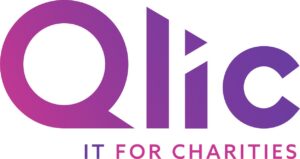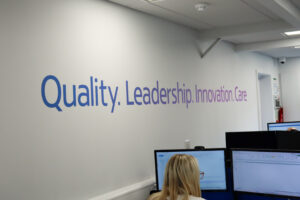Blockchain technology was originally created for cryptocurrencies like Bitcoin. It has now emerged as an innovation with a whole new purpose to help transform various industries and organisations. Blockchain has a transparent and secure digital register that records transactions across multiple computers. Blockchain technology has sparked interest in finance organisations, healthcare and charities.

Understanding Blockchain Technology
Blockchain is a decentralised circulated catalogue technology that stores data on thousands of servers. It consists of a chain of blocks, each containing a list of transactions that can’t be altered.
Each transaction is encrypted into a block through cryptographic hashing. This creates a unique digital fingerprint called a hash. This block is then added to a chain of transactions, forming the blockchain. A consensus mechanism is then used to validate transactions.
This transparency makes it secure and resistant to fraud. This is highly useful in the nonprofit sector dealing with confidential data.
Key Challenges Faced by Charities
Charities often face a number of unique challenges that can impact their effectiveness and reputation.
Transparency is an issue that arises as providing detailed information about every expenditure can be time-consuming. This can lead to potential suspicion among donors. A lack of robust governance structures can result in accountability problems. This increases the risk of funds being misused or not directed towards the intended cause.
Nonprofits must be careful when managing administrative costs, fundraising expenses and overheads. These challenges highlight the need for innovative solutions to enhance transparency, accountability and efficiency in the charity sector.
Donor trust promotes long-term relationships, encouraging consistent donor support and ensuring continued service to beneficiaries. It also enhances reputation, attracting more donations and partnerships.
From January to November 2022 there were 408 reports of charity fraud made to Action Fraud. These frauds resulted in a total reported loss of £2.3 million. (source: Fundraising Regualtor).
Figures like these emphasise the need for greater donation transparency. This is where blockchain technology and blockchain based platforms can come in useful.
How Blockchain Benefits Charities
Blockchain technology has several benefits to charitable organisations and offers many solutions to challenges faced by nonprofits. Let’s have a look at some examples:
- Transparency and Accountability: Every transaction made on a blockchain is recorded. This means that every donation can be tracked. This level of transparency ensures that funds are properly accounted for. This is because any attempt to alter a transaction would require agreement from all participants in the network. In this way, blockchain transactions can reduce the risk of charity fraud.
- Secure Donation Tracking: Blockchain technology can create a tamper-proof record of donations. Each transaction on a blockchain is recorded in a block and across multiple copies of the ledger. This allows for donation tracking in real time. This means donors can have transparency over their contributions and can confirm that their funds are being used as intended.
- Smart Contracts for Efficiency: Smart contracts are self-executing contracts with the terms of the agreement directly written in code. This exists on the blockchain and has the potential to automate fund distribution. After a donation, a smart contract can automatically distribute funds to beneficiaries according to set rules and conditions.
- Decentralised Identity: Blockchain technology can establish verifiable identities for beneficiaries stored in the chain. These identities are secure, immutable and unique to each individual. Digital identities on the blockchain verify and record biometrics, transaction history, and other relevant details.
- Reducing Intermediaries: Blockchain can facilitate transactions directly between parties without the need for intermediaries. This means that charity donations could be sent directly from donors to beneficiaries, bypassing traditional channels that often involve multiple parties. You can make blockchain transactions directly to charities. However, we suggest using a dedicated donation platform to make it easier for donors who are unfamiliar with blockchain. Charities using cryptocurrencies or blockchain tokens can use their donation to convert traditional payment methods (eg credit/debit cards) into blockchain transactions.
- Enhancing Donor Engagement: When someone donates to a charity with blockchain, they can see their donation’s progress in real time. They can see exactly when the charity received the funds, when they were deployed and who benefitted from them.

Practical Considerations and Challenges of Blockchain Technology For Charities
We’ve shown the advantages of blockchain for charities, but there are also challenges to think about when using this technology. Below you will find some examples:
- Technical Expertise: When implementing blockchain technology, it is crucial to have someone within your staff who has technical understanding. Without someone with technical knowledge, your charity is at risk of incorrect use of blockchain. This can potentially lead to security weaknesses affecting your charity’s cyber security. For more insights on current cyber security threats watch our webinar Beware of Phishers: Essential Guide to the Cyber Threat Landscape – Charity IT Day 2023 where we will spotlight current attack tactics, evaluate your organisation’s potential vulnerabilities, and outline actionable safeguards tailored to non-profits.
- Integration with Existing Systems: Integrating blockchain technology requires careful planning and alignment with an organisation’s current technology environment. It’s crucial to consider how blockchain will fit into the current landscape in terms of compatibility and charity digital transformation. Organisations may need to invest in or consult technical expertise to ensure the successful integration of blockchain technology.
- Regulatory and Legal Frameworks: The legal and regulatory frameworks of adopting blockchain technology are crucial to understand. Blockchain poses unique challenges in terms of compliance and data protection. Organisations must research the legal and regulatory landscape before using blockchain to meet obligations and avoid problems.
Steps to Embrace Blockchain Technology in Your Charity
Below is a list of actionable steps for your charity to take to incorporate blockchain technology efficiently:
- Education and Awareness: It’s important to make sure your staff and volunteers understand blockchain and its implications so they can use it efficiently.
- Pilot Projects: Blockchain technology is quite new to the technology world. Testing small-scale pilot blockchain projects is a good way to gradually introduce it to your charity operations.
- Collaboration: Collaborating with existing blockchain experts and partners will help your organisation ensure successful implementation. Learning from someone with experience in blockchain can help make your implementation more straightforward.
Closing Remarks on Blockchain Technology
Blockchain technology holds great potential for charities with its range of benefits that could revolutionise current operations. Its transparency can help harness trust by providing clear steps of where donations go, combating fraud and overall ensuring funds reach the intended beneficiaries. The use of smart contracts within blockchain can automate processes, reducing administrative costs and increasing efficiency and cyber security for charities.
However, while embracing this innovation, charities must also consider the potential risks and take a strategic approach to adopting it. Understanding the technology and integrating it with existing infrastructure ensures a successful and beneficial implementation.
Are you interested in exploring digital transformation opportunities for your charity that could improve its cyber security landscape?






